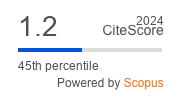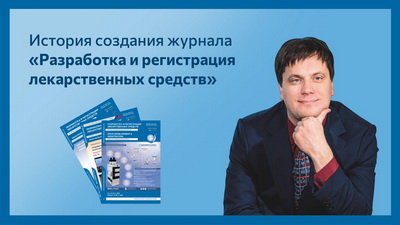Optimization of Methods for Determination of the Encapsulation Efficiency of Doxorubicin in the Nanoparticles Based on Poly(lactic-co-glycolic acid) (PLGA)
https://doi.org/10.33380/2305-2066-2020-9-2-113-118
Abstract
Introduction. Drug encapsulation efficiency (EE) is the important parameter of the nanoparticle-based drug formulations. Generally, the methods for evaluation of the EE are based on separation of the free and NP-bound fractions of the drug; however, applicability of these methods for a particulate formulation needs careful consideration.
Aim. The purpose of the study was to optimize the procedure for evaluation of the EE for a nanoparticle-based drug formulation taking doxorubicin loaded in the PLGA nanoparticles (PLGA-Dox NP) as a model formulation.
Materials and methods. The PLGA-Dox NP were prepared by a “double emulsion” method at pH of the external aqueous phase of 7.4 or 6.4. The NP size and size distribution (PDI) were determined by photon correlation spectroscopy (PCS) and transmission electron microscopy (TEM). For the EE evaluation of doxorubicin, the NP were separated by centrifugation (CF), ultrafiltration (UF), or gel filtration. The efficiency of NP separation by the CF method was evaluated by the PLGA content in the supernatant by capillary electrophoresis (CZE).
Results and discussion. The average hydrodynamic diameter of the PLGA-Dox/7.4 and PLGA-Dox/6.4 NP (FCS) was 103 ± 10 nm and 141 ± 8 nm, respectively. According to the TEM data, the main fraction of the NP averaged 50 ± 16 nm. The EE of doxorubicin, determined after the NP separation by centrifugation at 48254.g, was 78.9 ± 1.8 % for the PLGA-Dox/6.4 and 91.5 ± 0.9 % for the PLGA-Dox/7.4 NP with the residual PLGA content in the supernatant of ~5 %. At lower acceleration the NP separation was incomplete leading to underestimation of the EE. Also, the ultrafiltration method using the filters with the NMWL of 50 and 100 kDa enabled the reliable NP separation with the minimal doxorubicin adsorption on the filter (<4 %). Separation of the NP by gel filtration led to the underestimation of the EE due to considerable desorption of doxorubicin from the NP surface.
Conclusion. The optimal analytical procedures for evaluation of the EE of doxorubicin in the PLGA NP are based on the NP separation by CF at 48254×g and UF using filters with NMWL of 50 and 100 kDa.
Keywords
About the Authors
T. S. KovshovaRussian Federation
Tatyana S. Kovshova
GSP-1, 1, Leninskie Gory, Moscow, 119991,
9, Miusskaya Sq., Moscow, 125047
N. S. Osipova
Russian Federation
Nadezhda S. Osipova
9, Miusskaya Sq., Moscow, 125047
A. S. Fortuna
Russian Federation
Anastasiya S. Fortuna
4, Leninskiy prospekt, Moscow, 119049
Yu. V. Ermolenko
Russian Federation
Yulia V. Ermolenko
9, Miusskaya Sq., Moscow, 125047
O. O. Maksimenko
Russian Federation
Olga O. Maksimenko
9, Miusskaya Sq., Moscow, 125047
V. Yu. Balabanyan
Russian Federation
Vadim Yu. Balabanyan
GSP-1, 1, Leninskie Gory, Moscow, 119991
S. E. Gelperina
Russian Federation
Svetlana E. Gelperina
9, Miusskaya Sq., Moscow, 125047
References
1. Liu Z., Zhu Y.Y., Li Z.Y., Ning S.Q. Evaluation of the efficacy of paclitaxel with curcumin combination in ovarian cancer cells. Oncol Lett. 2016; 12 (5): 3944–3948. DOI: 10.3892/ol.2016.5192.
2. Wallace S.J., Li J., Nation R.L., Boyd B.J. Drug release from nanomedicines: selection of appropriate encapsulation and release methodology. Drug Deliv Transl Res. 2012; 2 (4): 284–292. DOI: 10.1007/s13346-012-0064-4.
3. Beck P., Scherer D., Kreuter J. Separation of drug-loaded nanoparticles from free drug by gel filtration. J Microencapsul. 1990; 7 (4): 491–496. DOI: 10.3109/02652049009040471.
4. Zheng Y., Wu Y., Yang W., Wang C., Fu S., Shen X. Preparation, characterization, and drug release in vitro of chitosan-glycyrrhetic acid nanoparticles. J Pharm Sci. 2006; 95 (1): 181–191. DOI: 10.1002/jps.20399.
5. Maksimenko O., Malinovskaya J., Shipulo E., Osipova N., Razzhivina V., Arantseva D., Yarovaya O., Mostovaya U., Khalansky A., Fedoseeva V., Alekseeva A., Vanchugova L., Gorshkova M., Kovalenko E., Balabanyan V., Melnikov P., Baklaushev V., Chekhonin V., Kreuter J., Gelperina S. Doxorubicin-loaded PLGA nanoparticles for the chemotherapy of glioblastoma: Towards the pharmaceutical development. Int J Pharm. 2019; 572: 118733. DOI: 10.1016/j.ijpharm.2019.118733.
6. Kumskova N., Ermolenko Y., Osipova N., Semyonkin A., Kildeeva N., Gorshkova M., Kovalskii A., Kovshova T., Tarasov V., Kreuter J., Maksimenko O., Gelperina S. How subtle differences in polymer molecular weight affect doxorubicin-loaded PLGA nanoparticles degradation and drug release. J Microencapsul. 2020; 3 (37): 283–295. DOI: 10.1080/02652048.2020.1729885.
7. Fülöp Z., Gref R., Loftsson T. A permeation method for detection of self-aggregation of doxorubicin in aqueous environment. Int J Pharm. 2013; 454 (1): 559–561. DOI: 10.1016/j.ijpharm.2013.06.058.
8. Bootz A., Vogel V., Schubert D., Kreuter J. Comparison of scanning electron microscopy, dynamic light scattering and analytical ultracentrifugation for the sizing of poly (butyl cyanoacrylate) nanoparticles. Eur J Pharm Biopharm. 2004; 57(2): 369–375. DOI: 10.1016/S0939-6411(03)00193-0.
9. Ruysschaert T., Marque A., Duteyrat J. L., Lesieur S., Winterhalter M., Fournier D. Liposome retention in size exclusion chromatography. BMC biotechnol. 2005; 5(1): 11. DOI: 10.1186/1472-6750-5-11
Review
For citations:
Kovshova T.S., Osipova N.S., Fortuna A.S., Ermolenko Yu.V., Maksimenko O.O., Balabanyan V.Yu., Gelperina S.E. Optimization of Methods for Determination of the Encapsulation Efficiency of Doxorubicin in the Nanoparticles Based on Poly(lactic-co-glycolic acid) (PLGA). Drug development & registration. 2020;9(2):113-118. (In Russ.) https://doi.org/10.33380/2305-2066-2020-9-2-113-118
JATS XML











































